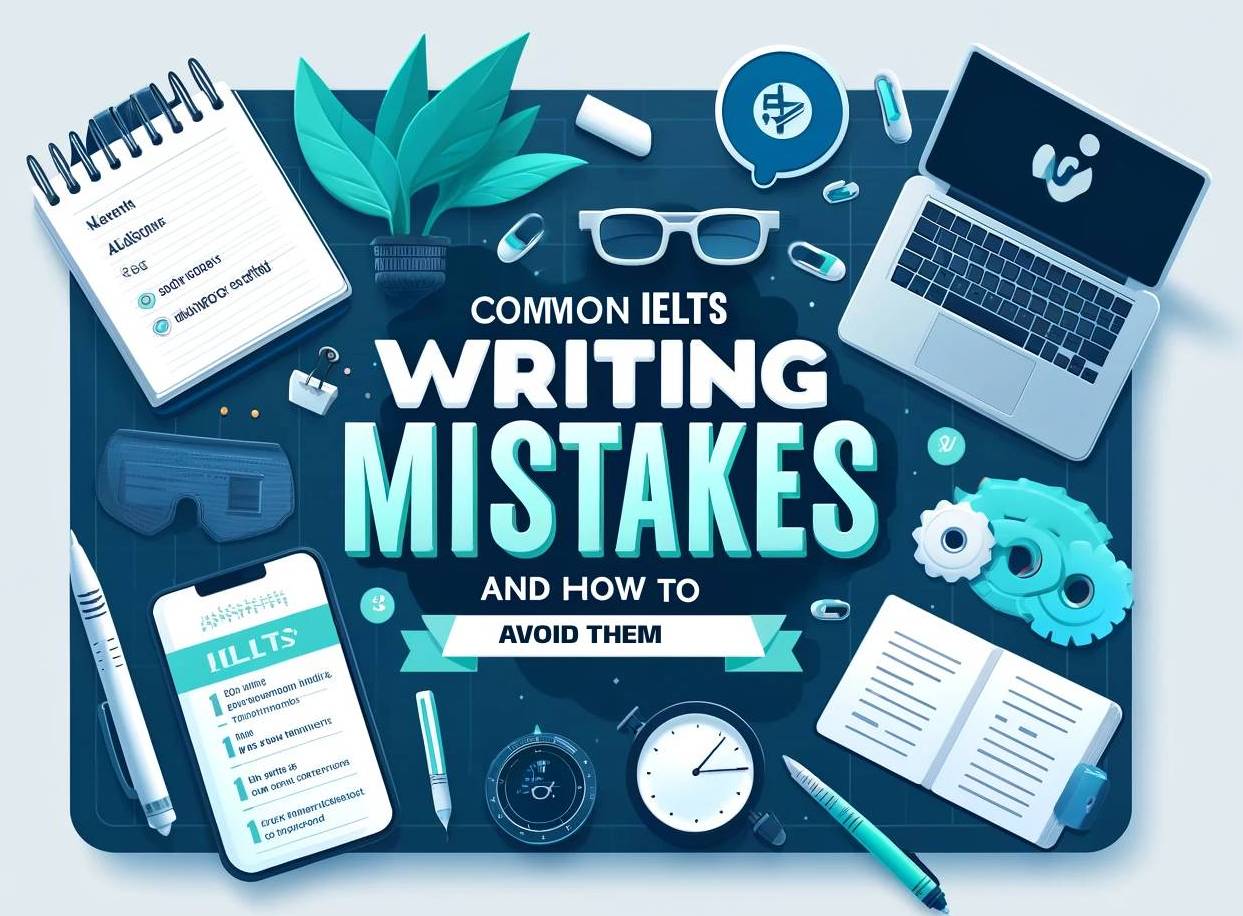Common IELTS Writing Mistakes and How to Avoid Them

Mistakes serve as a stepping stone for personal growth. However, in the context of the IELTS writing test, certain errors can easily affect your score. Understanding and avoiding these common mistakes is important for achieving an above-average score.
Understand the writing section format
To prepare for the IELTS, it is important to know about the format of the test to help candidates plan their strategies effectively. The candidates also should follow the given instructions to avoid wasting time during the test.
Furthermore, the IELTS format includes two tasks, each with its topic, word limit, and time limit. After identifying the type of topic, the candidate is required to present a solution to a problem, support an opinion, and compare and contrast evidence, and opinions in task 2 and summarize the main features, and compare in task 1 to form a complete and effective answer.
IELTS Academic Task 1: The candidate is given a graph, table, chart, or diagram and is asked to describe the visual information in at least 150 words in about 20 minutes.
IELTS Academic Task 2: The candidate is given a point of view, argument, or problem and needs to write at least 250 words in about 40 minutes.
Also read: What is an IELTS Mock Test?
Common IELTS Writing Mistakes and Improvements
1. No strategic planning
Candidates with no strategic planning face a hard time in managing the test due to word limit, time limit, formal writing, and vocabulary requirements.
For better strategic planning, identify the type of topics or questions and note down the points related to the writing. Thus, decide on the content addressing directly the topic with a well-thought-out opening statement and elaborating it to form meaning in each paragraph.
Also read; 7 Tips to Improve Your IELTS Score in 2024
2. Writing fewer or more words
Writing fewer words than required can give the impression that the candidate may not be aware of the topic. Additionally, the candidates have a misunderstanding that if they write more they will get better marks, which is incorrect as writing more words than required can be marked negatively.
That being the case, be aware of your word count and give proper answers within those word limits.
3. Limited vocabulary and too many grammatical mistakes
Having a limited vocabulary and making too many grammatical errors can easily lead to low scores. To avoid these mistakes, do enough practice with different rules of grammar to build up your grammar, expand your vocabulary by listening to English shows/ programs, and read passages every day.
Also read: TOEFL vs IELTS | Which One Should You Choose?
4. Failing to address the topic and addition of personal opinions or reasons
Candidate should realize that a well-structured response with good vocabulary and correct word count is not enough if it does not address the main idea of the topic or question. So take your time and understand the topic and the question, properly, and then write your response without overcomplicating it.
Many candidates also make the mistake of writing personal opinions or stating any personal reason, when instead, the candidate should stick to the facts especially in task 1.
5. Using examples that do not connect to the main idea
Another common mistake is not using to-the-point examples to support and express your ideas. Examples make it easier to understand the key idea of the candidate’s response and make it look well-developed.
6. Incorrect use of writing style, grammar, and vocabulary
Well, it should be understood by now, that IELTS is accepted by multiple countries worldwide, and you cannot risk missing out on the opportunity by not following the proper guidelines.
To avoid mark deduction, make sure to use formal writing, i.e avoid use of contracted wordforms, a good vocabulary with well-versed meaning, and fewer grammar mistakes and a range of sentence structures.
7. Lack of proper examination of ideas, evidence, or argument
Whether you are attempting the writing section, it is very important to examine your ideas, evidence, or argument to make sure it is relevant to the given question. Start by deciding on your position for the topic, then cover all the parts of the question with factual information connecting it to the suggested solution.
For further IELTS help, Edwise Foundation is well known for its IELTS preparations for helping students earn their desired band score in the Reading, Listening, Speaking section, and particularly in the Writing module by working on their common mistakes to avoid in the IELTS writing test.
Bonus Tips
- Break down the given time minutes into thinking, planning, and writing.
- Do not repeat words when writing on the given topic.
- Note down the ideas that you would like to include which will help you in planning each paragraph.
- Stick to the topic throughout your responses to make your answer clear and precise.
- Make sure to select the right writing style, grammar, and vocabulary depending on your type of topic or question since Task 2 has different questions and your approach to address them varies depending on the nature of the question.


